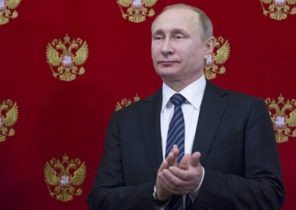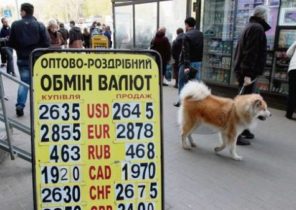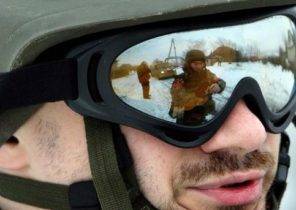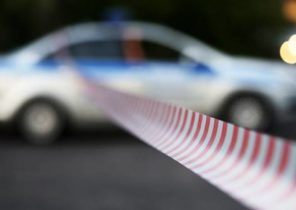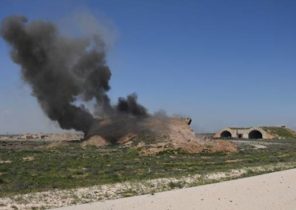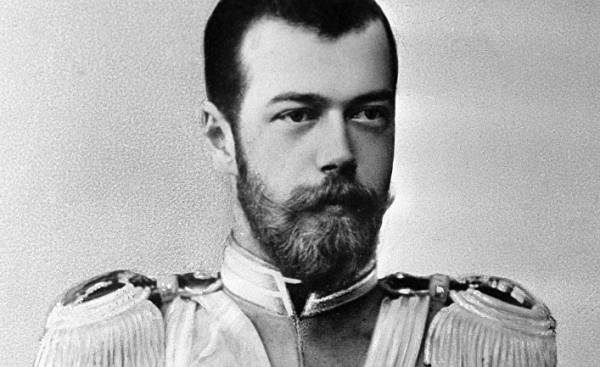
The article was published in the newspaper the New York Times March 18, 1917.
He believed in autocracy, but softened the harsh repressive measures of his father.
Convened by the Hague conference.
Japanese war was the beginning of his troubles. The Empress is suspected of Pro-German leanings.
Russian Tsar Nicholas II abdicated as a result of liberal revolution. He was forced to do so because they did not want or could not consolidate their positions of power for the successful conduct of a foreign war. If Nicholas died three years ago, it probably would go down in history as the man who convened the first Hague conference and gave Russia its first constitutional government.
Although this paradox is not as great as it seems: all the way Nicholas II as the Emperor of the evidence as the most well-meaning, but indecisive; not very advanced, by nature easily influenced by other people, the nature and motives of which he does not expose critical analysis; it is a weak and timid man who occasionally is to make some decisive step, and it’s so draining his internal resources, then what for a long time leaves the weak and helpless.
Nicholas ascended to the throne on the first of November, 1894, after 13 years of reaction established during the reign of his father Alexander III. On your temper and aspirations of Nicholas, it seems, takes a middle position between his father and grandfather, killed by Alexander II. Like his father, he firmly believed in autocracy; he almost was inherent liberal tendencies, of which the murder of his grandfather in 1881 became the biggest failure of Russian liberal movement. However, in order to continue the policy of harsh and repressive measures begun by his father, Nicholas lacked temperament, and possibly power.
Softens repressive measures
Instead, in the first years of his rule, he shows himself lenient and soft Emperor — more of a dreamer, not inclined to show a lively interest in public Affairs, and partly a mystic, but nevertheless a moderate and benevolent ruler. The Franco-Russian Alliance, which Russia has signed under his father, has developed into a strong Alliance, the repressive bureaucratic and police measures, which inflicted such severe blows to the revolutionary parties in previous decades, were relaxed, and finally at the beginning of 1899, the autocratic ruler of one of the world’s largest military empires takes the initiative to convene a conference to discuss disarmament and the establishment of the arbitral Tribunal.
Probably people of other storage would pay more attention to attempts to resolve what was the most important international disputes. But politics never interested in the king. He called the Hague conference. This idea did not belong to him; as in the case of many other important actions of his life, he took immediate and decisive action, which allowed him his position, inspired by the ideas of other people.
Although very soon it became clear that hope, nourished by enthusiasts of the Hague conference is not feasible, this event is, without doubt, contributed to the resolution of other issues, if not disarmament, the arbitration.
The war with Japan
Meanwhile, Russia gradually began to lean towards war with Japan. In February of 1904, really war broke out, and the growing disaster because of the incompetence or dishonesty of the authorities not only temporarily destroyed the reputation of Russia as a great power, but also sharpened the divisions within Russian society, which implicitly has been brewing for many years. The General strike in 1905 in Petrograd was the first sign that the revolution is not far off; meanwhile, the demoralization of the Russian army and the bureaucracy was so strong that observers compared Russia with France of 1789. Fearing the fate of Louis XVI, the king quickly issued a decree dated 30 October, which promised the establishment of a representative Assembly and other reforms, formulated rather vaguely.
The consequences were fatal for the liberals, and for the king. The first two Duma was elected by a fairly liberal voting and have a distinct radical character. They wanted more than he could afford any legislature in any country; and the convocation gave the bureaucrats an opportunity to re-perk. The future liberal legislation in the Duma prevented the uprising of sailors and soldiers in Kronstadt and Sevastopol, and street fighting in Moscow in 1905. The suppression of each of these rebellions strengthened the position of conservatives in the government, and the fear of losing life or property is largely made of those who held moderate views, to recoil from the revolution.
The result after about one year, the Duma was dissolved. Revolution, for a lack of leadership and organization, weakened by the defection of the moderate deputies, who had hoped to gain in the face of the legislature all need Russia, has been reduced to sporadic epidemic of murders. And the king, who at the beginning of his reign, were, if not liberal, certainly not a harsh reactionary seems to be seriously feared the possibility of establishing the national government. When in 1907 was convened the third Duma, elections to it were based on a limited vote, and she wore a pronounced conservative. The Russian revolution was again suppressed, and in the next few years she was destined to be unless the subject of inspiration for young writers.
The status of Nicholas as ruler of the Empire with a symbolic liberal institutions, in fact, were in the hands of the reactionaries, and was hardly durable, when events in the Balkans changed the course of Russian history. Those who advocated for the agreement with Austria, and active policy in the far East, the answer was the victory of Japan. Now the proclamation of Bulgaria’s independence and then annexation by Austria of Bosnia and Herzegovina has undermined Russia’s influence among the southern Slavs.
The war at the time was avoided because a decisive entry into the conflict of the German Emperor on the side of Austria, and, as is very likely misleading, Nicholas never forgot his “appearance in all the splendor of weapons.”
When in the last week of July 1914 the Germans again came to the aid of Austria, one of the most compelling reasons for Russia’s determination to fight, if circumstances so require, was considered the insistence of the Emperor not to give the Germans again encircle Russia around the finger.
Divisions within the country worsen
In Russia again began to brew internal division after the Balkan war finally broke the fragile balance that have prevailed in Europe since 1878. The Empire was on the verge of a General strike, when in 1914 war broke out. At that time, the Emperor acted as a powerful force to convince the Russians, that if someone expects to win on the strategy of bluff, it must be Russia.
Here Nicholas as the champion of the national and Slavic aspirations; telegram to the German Emperor and the king of great Britain George before the beginning of the war, he insists on the impossibility of the suspension of the mobilization. And when the war really began on 15 August 1914 he issued the famous Manifesto in which one of the goals of Russia in the war it was declared the independence of a United Poland. Later came another of his Manifesto, which had pinned its hopes of the Jews. While that Nicholas followed the basic principles of Russian liberalism: opposition to German aggression, the promotion of small Slavic States, liberal attitude to subordinate peoples within the Empire. However, after two years, he will be forced to abdicate.
The explanation should obviously be sought in the intrigues that trailed in the court and in the entourage of the king and were associated with superstition, mysticism and brutality, which in many circles was branded as a sign of the East; that, as he said, could only happen in Russia. Though I must admit that the policy detours in the Russian court, differs from the infamous situation in England and Germany only by degree, not essence, and from time to time implying the country, Republican by definition and form.
The element of “dark forces”
Increased influence at the Russian court “dark forces” has been fighting against the liberal revolution, it seems, is largely due to temperament and personal relationships of Nicholas. Betrayal from the beginning was common among the wide strata of the Baltic aristocracy, which occupies a high office and has more court officials. The fact that this influence, apparently, was enough to not once to paralyze the will of the Emperor, perhaps due to Empress, the psychological reaction Nicholas in the 1905 revolution and its religious mysticism.
Russian Empress Alexandra was Princess Alice of Hesse-Darmstadt. Despite the lack of any obvious scandals associated with the Imperial House, for many years there were rumors that she was unhappy at the Russian court, by nature they’re suited to each other. When the war started, they began to Express opinions, even in some Union with Russia, that the Empress was impressed by the part of the nobility of German origin, which was considered a German victory as not the worst option of the outcome of the war, which became for the Russian people to fight for the Fatherland.
It is generally accepted that since the uprisings that followed the Japanese war, the Emperor has never been afraid of liberalism and has lost confidence in him, and he could not serve as a warning to the growing influence of the Council and evidence that the Russian victory, the capture of Constantinople, is expected to bring more liberal reforms than the independence of Poland and elimination of restrictions for Jews.
I also think that the Emperor was afraid that the successes on the battlefield can alienate the Russian people from his own personality, which never really captured the imagination and gave rise to the unconscious enthusiasm, and make a national hero of his uncle, Grand Duke Nikolai Nikolaevich, who commanded the victorious army in the first war year.
But an even stronger influence on the king, based on the belief that became almost an indisputable fact, had the monk Rasputin, the last in a long line of miracle workers, who gave the king a mighty influence. In this area most evident East of Nicholas and East sides taken in his country of religious rites. In the presence of a monk, who earned a reputation as a man, he seemed so trusting, as a simple man.
The king’s favorite Frenchman Philippe Landar was replaced by the monk Theophilus, that was followed by Iliodor, the “mad monk” from Tsaritsyn; and finally there’s George Rasputin, who, according to popular belief, gained influence on the Emperor, taking advantage of the absolute confidence of the Queen.
Only in January Rasputin was killed in Petrograd by a small group of liberal-minded aristocrats, the group of which reportedly included the Grand Duke. Rasputin’s murderers were punished — though not as serious as one might expect — and the liberal party which they represented, was subjected to harassment. It seems that this reaction was for Nikolay fatal.
There are a number of indications that the soul of the Emperor fought the most different forces. His strong support for the popular struggle against the Germans and defense reforms, which called for the liberals in the beginning of the war, occasionally accompanied by evidence that he could get rid of the “dark forces” besieging his Palace. The most significant event occurred in September 1915, when after four months the plight of the Russian army at the front, the king transferred the Grand Duke Nicholas to the Caucasus and personally took over — though nominally the command of the troops.
This was for the Russian people a clear indication that their king is with them that it was his war and war, war for Holy Russia. But in the end the distrust of the liberals, the fear that can make people and the influence of the Empress, Baltic Germans and Rasputin, it seems, drew the king on the side of those who believed that victory for Germany is the lesser of two evils.
Outwardly, Nikolai is largely similar to his cousin king George. With regard to the personal qualities of the Emperor of Russia — if not to take into account his good desire to benefit his Ghost fear and the ease with which others could take his thoughts and feelings, there is little in common. Nicholas felt weak and timid; and the testimony of Prince George of Greece, who saw with my own eyes, as king was made the first attempt in Kyoto in 1891, and, according to him, “Nicky tried to escape [from the Japanese of a fanatic, who attacked him with a sword], running from one store to another”, it seems, is a fair prediction of the nature, not endowed with sufficient strength to be Emperor of a great nation that participated in the war of 1914.
